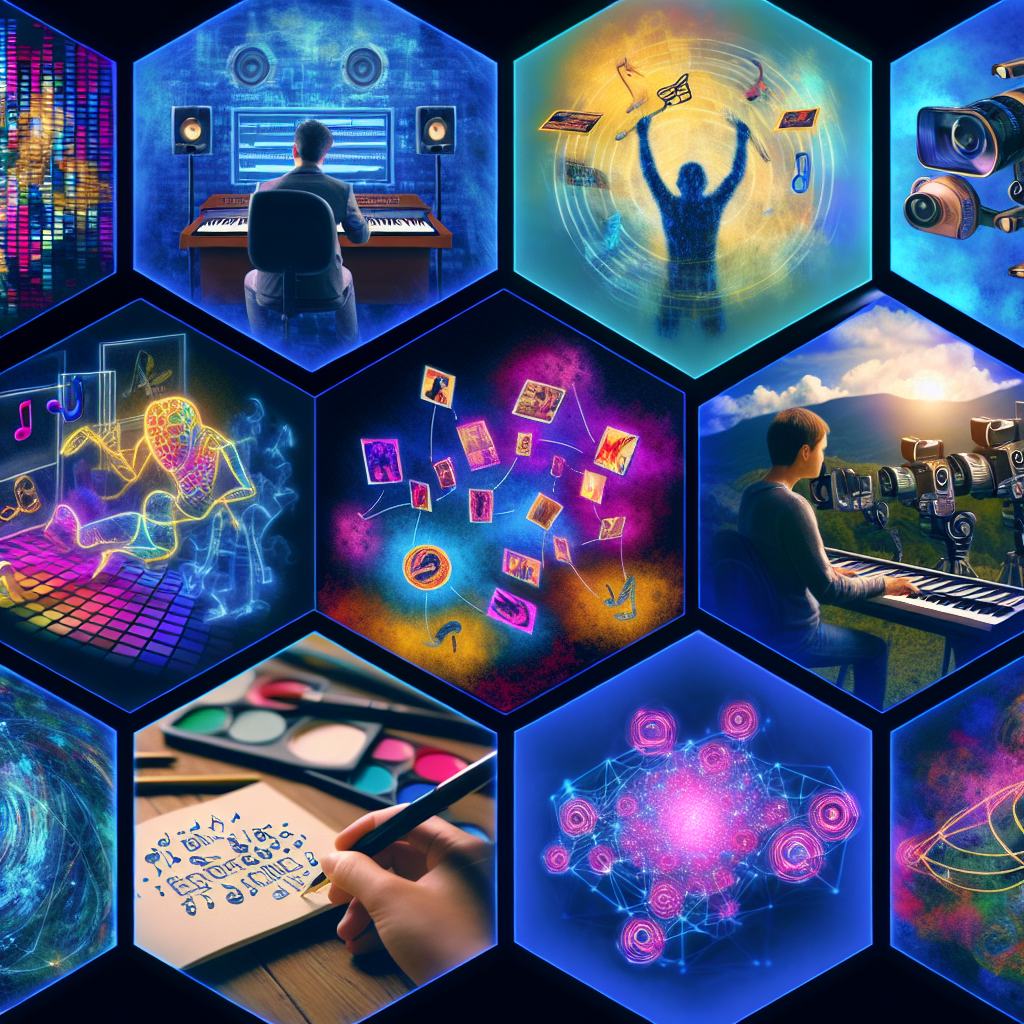The world of creativity is undergoing a seismic shift, and at the epicenter of this transformation is artificial intelligence (AI). No longer just a buzzword in tech circles, AI is now a game-changer across creative industries. From art and music to writing and filmmaking, AI is redefining how we create, consume, and appreciate creative content. Let’s dive into the gritty details of how AI is reshaping the creative landscape.
The Art of Algorithms
Art has always been about human expression, but now, machines are getting in on the act. AI-powered tools like DeepArt and Google's DeepDream use neural networks to create stunning visual artworks. These algorithms analyze existing artworks to generate new pieces, often blending styles in ways that human artists might never imagine.
Take, for instance, the painting "Edmond de Belamy" by the Paris-based collective Obvious. Created using a Generative Adversarial Network (GAN), this piece sold for a whopping $432,500 at Christie’s in 2018. AI isn't just making art; it's making headlines and big bucks.
Music to Your Ears
Music, too, is feeling the AI revolution. Platforms like AIVA (Artificial Intelligence Virtual Artist) and Amper Music allow anyone to compose original music tracks without needing any musical training. AIVA analyzes thousands of classical music scores to generate new compositions, while Amper uses AI to help users create custom music for their projects.
And it’s not just about composing. AI is also transforming how music is produced and mixed. LANDR, an AI-driven mastering service, offers instant audio mastering, making professional-quality sound accessible to independent musicians. AI is even stepping into the role of DJs, with algorithms curating playlists tailored to your unique tastes.
Words of Wisdom
Writing has always been a deeply human endeavor, but AI is starting to share the pen. Tools like OpenAI’s GPT-3 can generate text that is astonishingly human-like. From drafting articles and writing poetry to creating dialogue for video games, AI is proving to be a versatile writer’s assistant.
For instance, the AI novel "1 the Road" by Ross Goodwin, generated entirely by an AI during a road trip, shows the potential of AI in literature. While it may not win a Pulitzer, it demonstrates that AI can assist in the creative writing process, offering new perspectives and ideas that humans might not consider.
Lights, Camera, AI!
The film industry isn’t left out either. AI is revolutionizing everything from scriptwriting to editing. ScriptBook, an AI-based script analysis tool, predicts the success of a screenplay by analyzing its content. This helps studios make informed decisions about which projects to greenlight.
Post-production is another area where AI shines. Editing, color correction, and even special effects can now be automated to some extent. Adobe’s Sensei AI platform is integrated into Creative Cloud applications, offering features like automated color matching and scene editing suggestions.
AI is also making waves in animation. Pixar and Disney are using machine learning to enhance animation quality and streamline workflows, making the process more efficient without sacrificing creativity.
The Dark Side of AI in Creativity
But it’s not all roses and sunshine. The rise of AI in creative industries raises important questions about originality, authorship, and job displacement. When an algorithm generates a piece of art or a song, who owns the copyright? The developers of the AI? The user? These are uncharted waters that the legal system is still grappling with.
Moreover, there’s the issue of authenticity. Can a machine truly capture the human experience, with all its nuances and emotions? Some purists argue that AI-generated content lacks the soul that human-created art possesses. And then there’s the potential for job displacement. As AI tools become more sophisticated, there’s a legitimate concern that they could replace human creatives in certain roles.
Embracing the Future
Despite these challenges, the fusion of AI and creativity offers exciting possibilities. AI can handle repetitive tasks, allowing human creators to focus on what they do best: innovating and expressing. It can act as a collaborator, providing new ideas and perspectives that push the boundaries of traditional creative processes.
As we navigate this brave new world, it’s crucial to strike a balance. Embrace the efficiencies and possibilities that AI brings, but don’t lose sight of the human touch that lies at the heart of all great art. AI is a tool—an incredibly powerful one—but it’s the human spirit that breathes life into creativity.
So, whether you're an artist, musician, writer, or filmmaker, it's time to harness the power of AI. Explore these new tools, experiment with them, and see how they can augment your creative process. The future of creativity is here, and it's teeming with potential. Dive in and let AI amplify your artistic voice.
